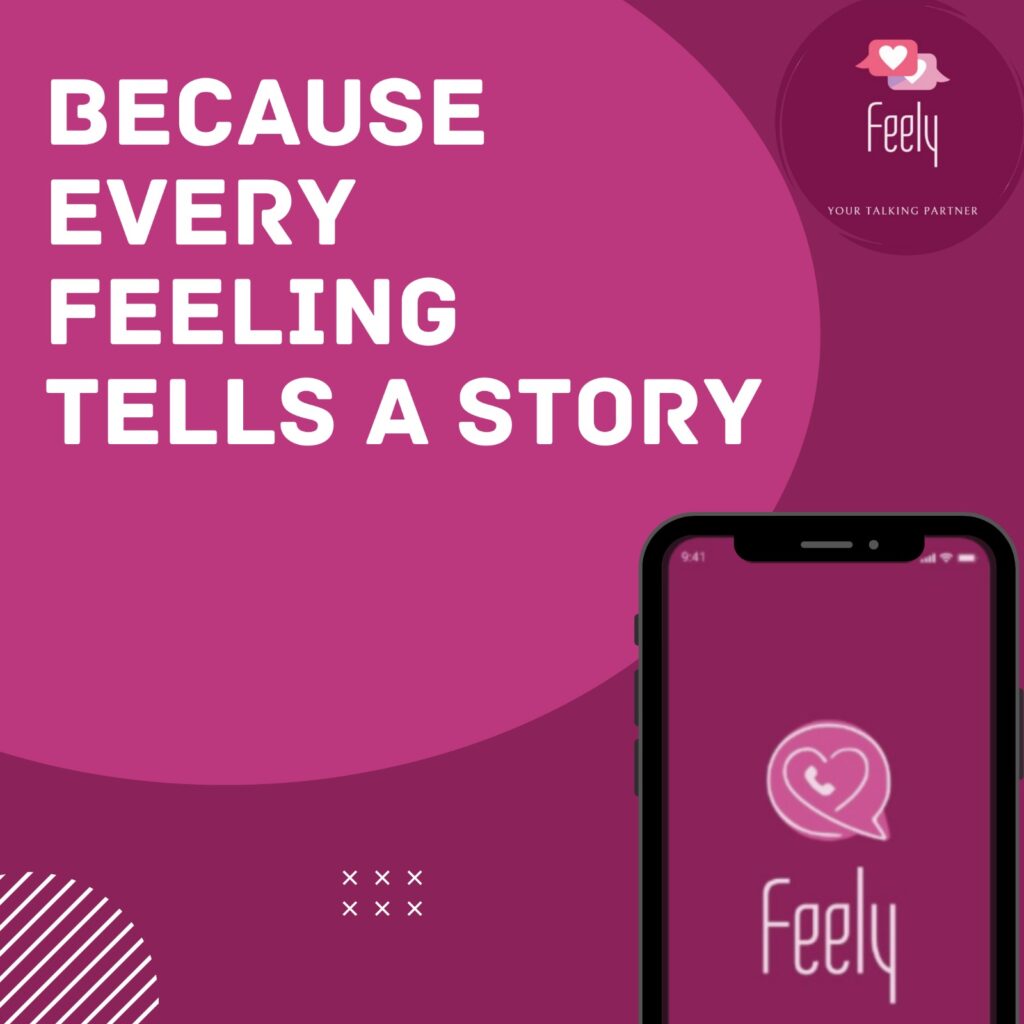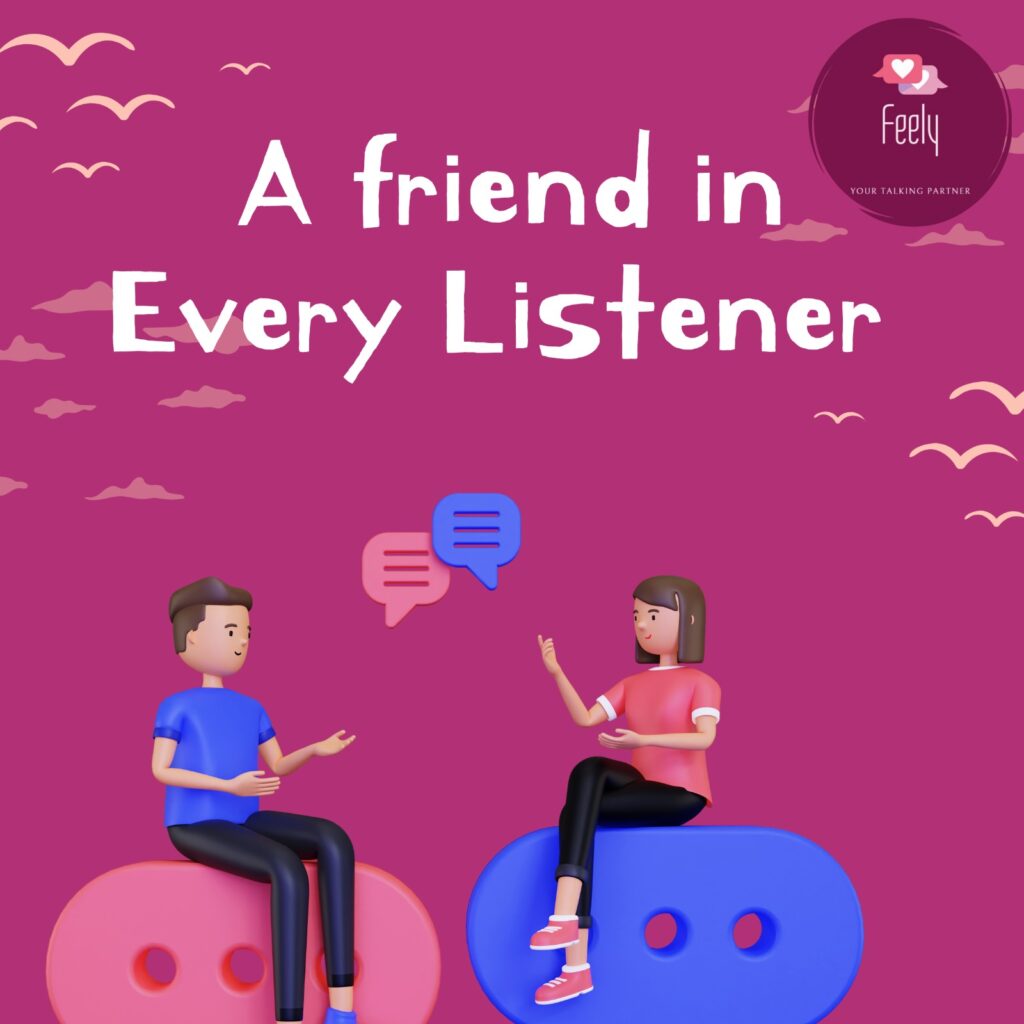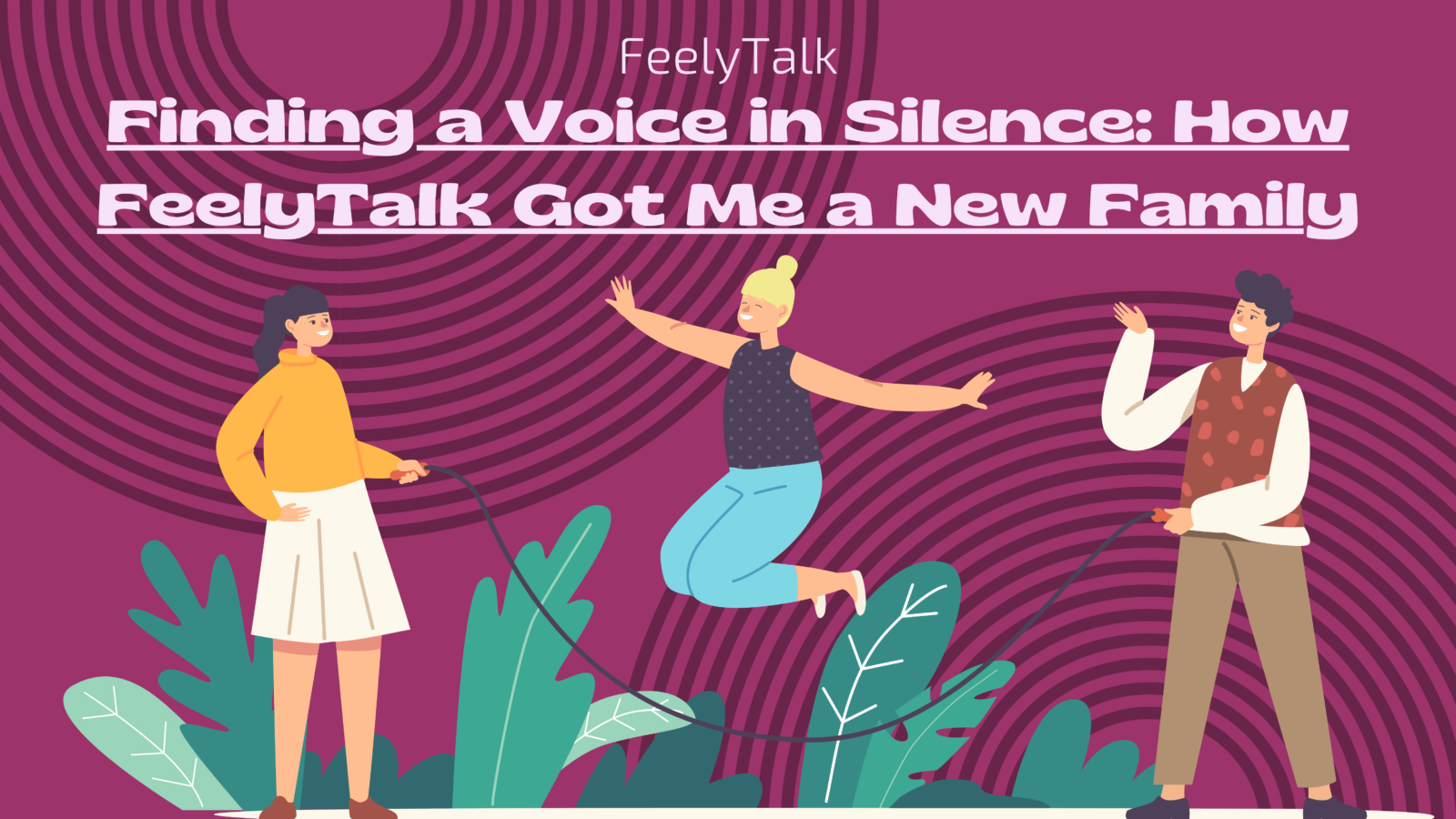Hello, I’m Kiran. I’m 28, and I’ve spent most of my life in silence—not because I couldn’t speak, but because I didn’t have someone to talk to. This is the story of how FeelyTalk transformed my perspective and helped me rediscover what it means to connect with others.
The Weight of Loneliness
I was raised in a small town in Uttar Pradesh. My parents were strict and traditional, and we rarely talked about anything other than our daily tasks. After finishing college, I relocated to Delhi for a job, looking for a new beginning.
However, city life did not meet my expectations. My colleagues were friendly but preoccupied with their own lives. My few college buddies have drifted away, caught up in their own paths. Weekends became the loneliest times of my life. I’d sit in my small rented apartment, scrolling endlessly through social media, watching people share moments of joy, laughter, and connection—things I wished for but lacked.
I used to wonder, “Why hasn’t anyone noticed me?” Do I really matter to anyone?” I realized I hadn’t had a meaningful conversation in months. The loneliness felt like an unending hole.
Discovering FeelyTalk.
One night, I entered in Google: “Need to talk with someone.” Among the search results was FeelyTalk, an app that promised to link you with vetted listeners and a community of caring individuals.
I was skeptical. Could an app actually help someone like me? But urgency trumped skepticism, so I decided to give it a shot.
The First Message
I signed up and was met by Aman, a listener who identified himself as a Happy Coach. It seemed silly that someone could be cheerful when I was so broken, yet his message was warm:
“Hello, Kiran! I’m available whenever you’re ready to talk. “There’s no rush.”
After a few minutes of reluctance, I began typing. I told Aman about my loneliness, how I felt invisible, and how I hadn’t had a meaningful discussion in weeks. His remark was not just compassionate, but also affirming.
“I am so glad you shared this, Kiran,” he continued. “Being lonely is awful, but you’re not alone.
“Let us talk about it together.”
For the first time, I felt like someone genuinely cared.

Community of Support
After my appointment with Aman, I continued to explore the app. There was a function that allowed me to chat with new acquaintances who were dealing with similar life issues.
I joined a group chat named “Lonely Hearts Club.” I smiled at the name. It was packed with people from all walks of life, including a college student yearning home, a retired teacher who had lost her partner, and even a young businesswoman who was struggling with isolation despite her success.
I addressed myself as “Hi, my name is Kiran.” I’m not used to talking a lot, but I’d like to try.”
Responses were immediate and kind:
“Welcome, Kiran! We are delighted you are here.
“Take your time; we’re here for you.”
“This is a safe space to share.”
Over the next two weeks, I became more open. I told you how I spent my weekends alone, how I dreaded festivals because they reminded me of how detached I felt, and how much I wished for simple things like having someone to eat supper with.
One day, someone in the group proposed a simple challenge: “Let’s all share one thing we’re grateful for today.” It seemed foolish at first, but it eventually became a daily practice that offered surprising joy.
The Turning Point
One evening, after a particularly difficult day at work, I felt the old impulse to withdraw into silence. Instead, I reached out to Aman.
“I feel invisible again,” I confessed.
Aman replied, “Kiran, you are not invisible to me or the friends you’ve made here.
Sometimes our imaginations deceive us into believing lies about our worth. Let’s rewrite the story together.”
He led me through a simple exercise. I had to write down three things I appreciated about myself. It was difficult at first, but I managed.
I’m kind to animals.
I am a good listener.
I have an excellent memory for details.
That simple activity instilled a sense of self-acceptance.
Building a New Life
FeelyTalk gradually became an integral part of my existence. The app connected me not only with listeners like Aman, but also with friends who understood and supported me.
One day, a groupmate asked us to a virtual movie night. We watched an old Bollywood film together, conversing and laughing the entire time. For the first time in years, I felt like I fit in anywhere.
I also began implementing the habits Aman suggested:
Every night, I journal my thoughts.
I go for brief walks to clear my head.
Reaching out to at least one person every day, even if it was as easy as asking “How are you?”
These simple modifications made me feel more connected to the world around me.

Finding my voice
Months later, I recognized how much I had progressed. Conversations, laughing, and support replaced the silence that had previously defined my life.
One day, I decided to share my experiences with the group. “I used to think I didn’t matter,” I confessed. “But thanks to everyone, I’ve learnt that I do. Thank you for assisting me in discovering my unique voice.”
The responses flowed in:
“You’ve always mattered, Kiran.”
“We’re so proud of you!”
“You inspire us.”
Final Thoughts.
If you’re reading this and feel like you don’t have anyone to talk to, I want you to know that you are not alone. There are people out there who care, even if you have not met them yet.
FeelyTalk provided me with a new family when I thought I didn’t have one. Whether you need to talk to someone or make new friends, this app could be the first step toward a brighter, more connected future.
Take that action. You should be heard.


У нас вы можете найти вспомогательные материалы для абитуриентов.
Курсы по ключевым дисциплинам включая естественные науки.
Успешно сдайте тесты с использованием пробных вариантов.
https://child-blog.ru/children/otdyh-s-detmi/chto-posmotret-s-rebenkom-top-13-luchshih-multfilmov-dlya-vsey-semi.html
Демонстрационные варианты объяснят сложные моменты.
Регистрация не требуется для комфортного использования.
Используйте ресурсы дома и успешно сдавайте экзамены.
Здесь доступны подготовительные ресурсы для школьников.
Все школьные дисциплины в одном месте включая естественные науки.
Готовьтесь к ЕГЭ и ОГЭ благодаря интерактивным заданиям.
https://izhlife.ru/company/reshebniki-pochemu-ih-ispolzovanie-vsegda-s-plyusom-dlya-shkolnikov.html
Образцы задач упростят процесс обучения.
Все материалы бесплатны для комфортного использования.
Применяйте на уроках и достигайте отличных результатов.